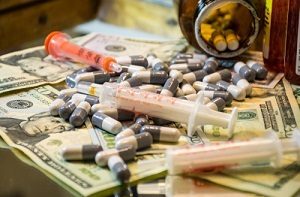Regeneron: The Government’s Latest Stand against Patient Kickbacks

This week, Boston-based prosecutors have filed a new False Claims Act case against Regeneron, a pharmaceutical company, alleging that it paid patients kickbacks aiming to steer them into using Regeneron’s macular degeneration drug, Eylea. Regeneron allegedly disguised the kickbacks as charitable contributions to a foundation. Prosecutors say that Regeneron only donated exactly enough money to the foundation, called the Chronic Disease Fund, to cover Eylea co-pays, and not any of its competitors. The government is harmed by this practice because it removes market forces out of a patient’s choice of drug, steering patients to more expensive drugs. If expensive drugs are associated with hefty co-pays, as Medicare intended them to be, patients might opt for cheaper alternatives. The Boston US Attorney’s office has collected nearly a billion dollars pursuing cases with a similar theory against many giants in the industry including Pfizer, United Therapeutics, Amgen, Astellas, Alexion, Actelion, Jazz, and Sanofi-Aventis.
That’s not to say there is anything wrong or illegal about big pharma making legitimate donations to charity. The potential illegality arises when those donations are meant to boost sales of the donor’s products and the expense of competitors and the Medicare Trust Fund. That’s exactly what is alleged here. Regeneron executives allegedly ordered substantial analyses evaluating the return on investment of their “charitable” donations and did what they could to boost that number. They also repeatedly contacted the foundation to learn exactly how much money the foundation needed to cover Eylea co-pays.
Eylea is an expensive drug. It generally costs about $10,000 a year per patient and since 2013, Medicare has spent $11 billion on it. Before Regeneron acquired rights to Eylea, the drug cost between $1,500-$1,900 per dose. Upon acquiring the drug in 2011, Regeneron set the dose price at $1,850, near the top of that range. The government alleges, citing an email from a Regeneron marketing consultant, that the price was chosen after determining that the high price will offset the expected donations to the foundation.
The case will now move forward. Regeneron will next either need to answer the complaint or file a motion to dismiss. This case was brought directly by the government but would also be actionable under the qui tam provisions of the False Claims Act. The law allows whistleblowers to bring cases in the name of the government and share in up to 30% of the recovery. Relationships between drug companies and charities are often confusing and opaque. Whistleblowers are essential to bringing frauds like this one to light, saving the Medicare program, and American taxpayers, astounding sums of money.
Read More:
- False Claims Acts
- How Copayment Waivers can Give Rise to a Whistleblower Claim
- When a Gift is Not a Gift: Pharma Companies Use Charities to Increase Drug Profits
- All Our Posts on Pharma Fraud
Tagged in: Anti-Kickback and Stark, Drug and DME Pricing, FCA Federal, Medicare, Pharma Fraud,